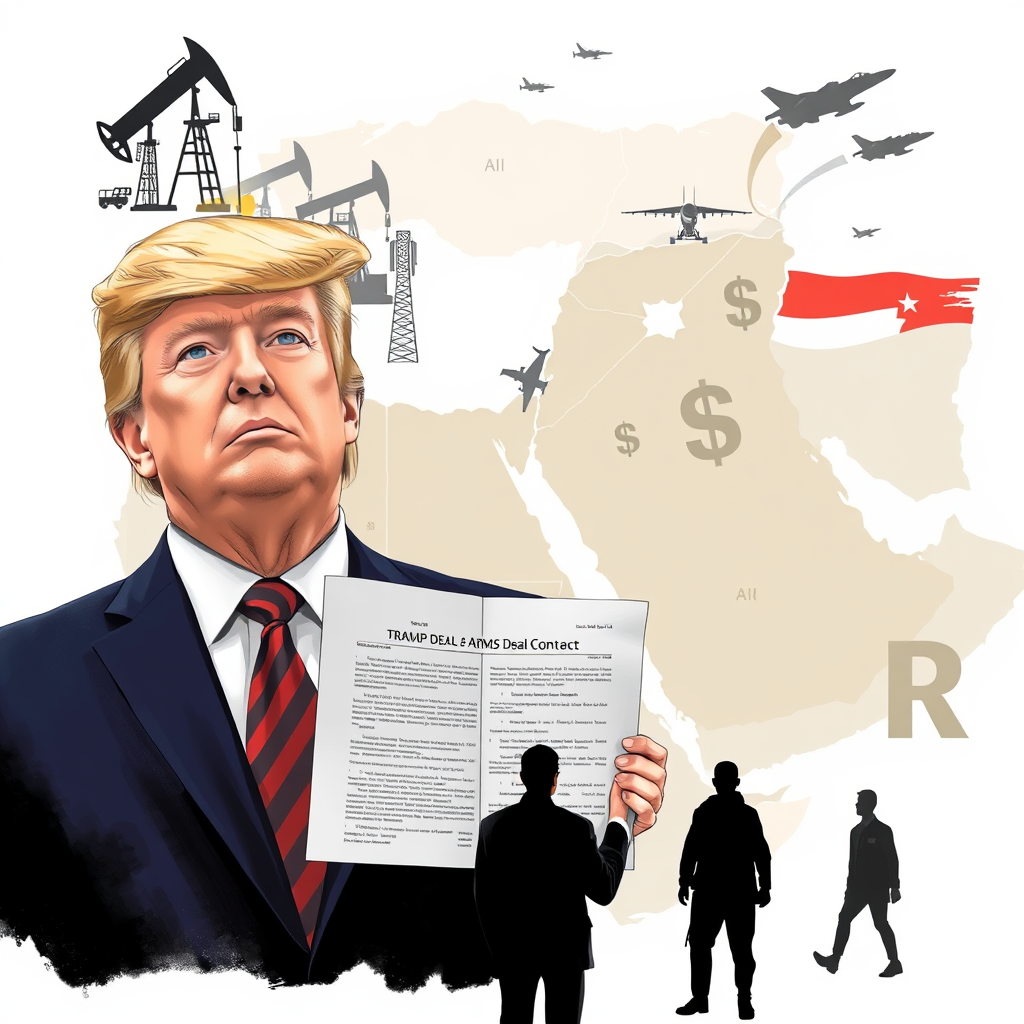Trump’s Middle East Tour Shocks the World

Donald Trump recently concluded a whirlwind tour of the Middle East, marked by ambitious deals, controversial proposals, and a clear attempt to reshape U.S. foreign policy in the region. The trip, encompassing Saudi Arabia, Qatar, and the United Arab Emirates, yielded billions of dollars in investment agreements and signaled a potential shift in Washington’s approach to long-standing conflicts and alliances.
The centerpiece of the economic component was a staggering $142 billion arms deal with Saudi Arabia, alongside broader agreements covering security, technology, and energy. Qatar pledged investments totaling $600 billion, and a $96 billion Boeing deal was finalized. However, the acceptance of a $400 million Boeing 747 gifted by Qatar raised ethical and legal concerns, with critics labeling it a potential bribe. Trump defended the gift, stating it would serve as a temporary replacement for Air Force One.
Perhaps the most surprising development was Trump’s announcement of plans to lift decades-old sanctions on Syria and his meeting with Syrian President Ahmed al-Sharaa, a former militant leader with a controversial past. This move, occurring amidst the ongoing Syrian civil war, drew immediate criticism and questions about the administration’s commitment to human rights and accountability. Trump described al-Sharaa as a “tough guy” and suggested he could play a role in stabilizing the region.
The President also reignited a debate over the future of Gaza, proposing a U.S. takeover to establish a “freedom zone.” This idea, previously dismissed by many international observers, would likely involve the displacement of the Palestinian population and further complicate the already fragile Israeli-Palestinian conflict.
On the Iranian nuclear issue, Trump expressed a desire to negotiate a new deal, contingent on Iran halting its support for terrorism and abandoning its pursuit of nuclear weapons. While Iranian officials signaled a willingness to engage in talks, key sticking points remain, particularly regarding sanctions relief and verification mechanisms. Reports suggest back-channel negotiations are underway, but significant hurdles remain.
The trip was not without its controversies. The acceptance of a luxury plane from Qatar, the meeting with a controversial Syrian leader, and the proposal for a U.S. takeover of Gaza all sparked outrage and raised questions about the administration’s priorities. While the economic benefits of the trip are undeniable, the long-term implications of Trump’s policies remain uncertain.
It’s clear that Trump views the Middle East through a transactional lens, prioritizing economic deals and security cooperation over traditional diplomatic norms. Whether this approach will ultimately lead to greater stability and peace in the region remains to be seen. The trip demonstrated a willingness to upend established relationships and pursue unconventional solutions, but also highlighted the risks of prioritizing short-term gains over long-term strategic considerations. The coming months will be crucial in determining whether Trump’s gamble will pay off or further destabilize an already volatile region.